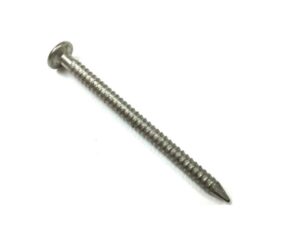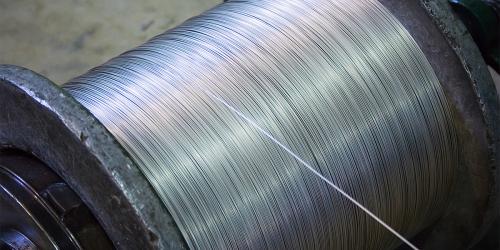Understanding the differences between various fixing products can be a key factor in ensuring the success of your project. In this blog, we’re going to explore ring shank nails and annular ring nails – two popular, and sometimes confused, options in the fastening world.
What Are Ring Shank Nails?
Ring shank nails are known for their unique design, which includes annular (ring-shaped) threads on the shank. These threads create a locking effect with wood fibres, overall enhancing the nail’s resistance to becoming loose. This is particularly beneficial in applications where expansion and contraction due to moisture or weather exposure is a concern. They are ideal for softer woods and are commonly used for roof decking, shingles, fences, and carpentry work.
What Are Annular Ring Nails?
Annular ring nails, often just another term for ring shank nails, have a similar design and function. The term ‘annular’ refers to the ring-like threads that provide the enhanced grip. This means that in many contexts, ring shank nails and annular ring nails can be considered the same, with the terms used interchangeably. This is often why people get confused with the two, however, you just need to remember that they are pretty much the same!

Comparison with Other Nail Types
Understanding the contrast between ring/annular ring nails and other types such as smooth shank or screw shank nails is important. Smooth shank nails, for instance, rely on friction between the wood fibres and the shank for holding power, making them suitable for basic framing and interior finish work. However, due to the lower resistance, they are less effective in adverse conditions. On the other hand, screw shank nails, which are often more suitable for hardwoods, provide a greater pull-through resistance due to their screw-like design. They are more challenging to drive than ring shank nails but offer superior holding power in specific projects such as decking, flooring, and framing.
Why Choose Ring Shank/Annular Ring Nails?
- Enhanced Holding Power – as a result of their unique design, these nails provide significantly better grip and resistance against withdrawal, making them ideal for high-stress applications.
- Versatility – effective in both softer woods and situations where materials are exposed to elements that cause expansion and contraction.
- Application Diversity – perfect for tasks requiring stronghold, such as roofing, siding, and subfloor installations.
When Not to Use Them?
Whilst ring shank nails are versatile, they are not always the best choice. For instance, in hardwood applications or where a less visible finish is required, other types of nails like smooth shank or screw shank might be more appropriate.
In summary, whilst ring shank and annular ring nails are often the same, understanding their unique benefits and applications is crucial for optimal usage. At BS Fixings, we pride ourselves on providing high-quality fixing solutions and expert advice. If you're uncertain about the best type of nail for your project, don't hesitate to contact us – we're here to help! Please call us on 03330 117818 or email [email protected] and we will be happy to discuss anything with you.






